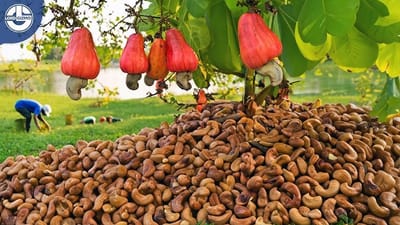MAIZE #Africa commodities Updates
Tunisia’s recurring soft wheat tenders aren’t just a local story—they’re a bellwether for global agricultural markets. As the North African nation scrambles to secure its wheat supply against a backdrop of drought, domestic production shortfalls, and geopolitical shifts, investors are being handed a unique opportunity to capitalize on structural demand trends in global commodities.Tunisia’s wheat imports have surged in recent years, with the 2024/25 season projecting a staggering 1.8 million metric tons of imports to meet domestic consumption of 2.89 million metric tons. This dependency isn’t a temporary fix—it’s a structural shift driven by three key factors: 1. Domestic Production Constraints: Tunisia’s wheat output remains stubbornly low, averaging 1.25 million metric tons annually. Droughts and soil salinity issues in key growing regions like Kairouan and Sousse have made self-sufficiency a distant dream.
Read MoreThe centerpiece of this collaboration is Niger State’s bold vision to increase annual paddy production from the current 1.5 million tons to an unprecedented 10 million tons by 2030. This six-fold increase represents one of Africa’s most ambitious agricultural transformation targets and positions Niger State as a critical player in Nigeria’s journey toward rice self-sufficiency.“Through this strategic partnership with AfricaRice, Niger State is committed to transforming our entire rice value chain to dramatically increase yields and production statewide. With rice being a staple food for millions of Nigerians, this partnership presents a golden opportunity to scale up proven innovations and finally achieve the rice self-sufficiency our nation deserves.” stated H.E. Hon.
Read MoreThe Africa cashew market is experiencing robust growth driven by increasing global demand, particularly from Asia and Europe. West African countries such as Ivory Coast, Ghana, and Nigeria dominate production, collectively contributing over 60% of global cashew nut exports. Favorable climatic conditions and expanding farmland area have supported higher yields. However, the market faces challenges like fluctuating international prices, limited processing capacity within Africa, and infrastructural constraints. Governments and private sectors are investing in improved farming techniques and processing facilities to capture more value locally.
Read MoreDriven by rising demand for maize oil in Africa, the market is expected to start an upward consumption trend over the next decade. The performance of the market is forecast to increase slightly, with an anticipated CAGR of +1.1% for the period from 2024 to 2035, which is projected to bring the market volume to 336K tons by the end of 2035. In value terms, the market is forecast to increase with an anticipated CAGR of +4.6% for the period from 2024 to 2035, which is projected to bring the market value to $699M (in nominal wholesale prices) by the end of 2035.
Read More


